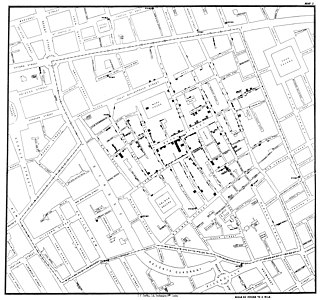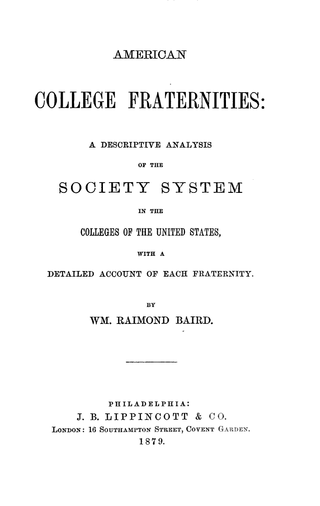
Karl Theodor Sapper (6 February 1866 - 29 March 1945) was a German traveler, explorer, and antiquarian who is known for his research into the natural history, and cultures of Central America.

Karl Theodor Sapper (6 February 1866 - 29 March 1945) was a German traveler, explorer, and antiquarian who is known for his research into the natural history, and cultures of Central America.
Sapper studied geology in Munich and showed a vivid interest in geography. [1]
In 1888 the young Sapper traveled to Guatemala, where his brother worked as a coffee planter. For two years Sapper managed a plantation, but he gave up this position because of ill health. However, in those two years Sapper learned three languages from the locals, as Spanish was not in common use. He also carried out topographic, and geological surveys, while pursuing his interest in ethnography, and archeology. After giving up the plantation work, Sapper moved to Cobán and with the financial support of his brother he was able to dedicate himself to scientific studies. [2]
Sapper traveled throughout central America, and spent some time working as a geologist for the government of Mexico. Sapper's diaries are filled with his observations on geology, weather, vegetation, as well as the social and economic situation of the local people. He drew geological maps of central America, and a large topology of Guatemala. Sapper published and became accepted as authority on central America. [3]
Sapper returned to Germany in 1900 aged 34, after 12 years in central America. He wrote his habilitation and was able to lecture at German universities. In 1902 Sapper was appointed professor of geography at the University of Tübingen, and in 1910 became professor at the University of Strasbourg. In 1919 he moved on to the University of Würzburg, becoming instrumental in establishing an institute of geography. He remained in this position until he retired in 1932. [4]

Human geography or anthropogeography is the branch of geography that studies spatial relationships between human communities, cultures, economies, and their interactions with the environment, examples of which is studied in schools are urban sprawl, urban redevelopment etc. It analyzes spatial interdependencies between social interactions and the environment through qualitative and quantitative methods.

In the arts and in literature, the term avant-garde identifies a genre of art, an experimental work of art, and the experimental artist who created the work of art, which usually is aesthetically innovative, whilst initially being ideologically unacceptable to the artistic establishment of the time. The military metaphor of an advance guard identifies the artists and writers whose innovations in style, form, and subject-matter challenge the artistic and aesthetic validity of the established forms of art and the literary traditions of their time; thus how the artists who created the anti-novel and Surrealism were ahead of their times.

Charles Margrave Taylor is a Canadian philosopher from Montreal, Quebec, and professor emeritus at McGill University best known for his contributions to political philosophy, the philosophy of social science, the history of philosophy, and intellectual history. His work has earned him the Kyoto Prize, the Templeton Prize, the Berggruen Prize for Philosophy, and the John W. Kluge Prize.

The Maya Mountains are a mountain range located in Belize and eastern Guatemala, in Central America.

Taylor & Francis Group is an international company originating in England that publishes books and academic journals. Its parts include Taylor & Francis, Routledge, F1000 Research and Dovepress. It is a division of Informa plc, a United Kingdom–based publisher and conference company.
The Ghaznavid dynasty or the Ghaznavid Empire, was a Persianate Muslim dynasty and empire of Turkic mamluk origin, ruling at its greatest extent, large parts of Persia, Khorasan, much of Transoxiana and the northwest Indian subcontinent from 977 to 1186. The dynasty was founded by Sabuktigin upon his succession to the rule of Ghazna after the death of his father-in-law, Alp Tigin, who was an ex-general of the Samanid Empire from Balkh, north of the Hindu Kush in Greater Khorasan.

Routledge is a British multinational publisher. It was founded in 1836 by George Routledge, and specialises in providing academic books, journals and online resources in the fields of the humanities, behavioural science, education, law, and social science. The company publishes approximately 1,800 journals and 5,000 new books each year and their backlist encompasses over 70,000 titles. Routledge is claimed to be the largest global academic publisher within humanities and social sciences.

Bayard Taylor was an American poet, literary critic, translator, travel author, and diplomat. As a poet, he was very popular, with a crowd of more than 4,000 attending a poetry reading once, which was a record that stood for 85 years. His travelogues were popular in both the United States and Great Britain. He served in diplomatic posts in Russia and Prussia.

Southern United States literature consists of American literature written about the Southern United States or by writers from the region. Literature written about the American South first began during the colonial era, and developed significantly during and after the period of slavery in the United States. Traditional historiography of Southern United States literature emphasized a unifying history of the region; the significance of family in the South's culture, a sense of community and the role of the individual, justice, the dominance of Christianity and the positive and negative impacts of religion, racial tensions, social class and the usage of local dialects. However, in recent decades, the scholarship of the New Southern Studies has decentralized these conventional tropes in favor of a more geographically, politically, and ideologically expansive "South" or "Souths".

War photography involves photographing armed conflict and its effects on people and places. Photographers who participate in this genre may find themselves placed in harm's way, and are sometimes killed trying to get their pictures out of the war arena.

Baird's Manual of American College Fraternities was a compendium of fraternities and sororities in the United States and Canada, published between 1879 and 1991. One modern writer notes, "Baird's Manual of American College Fraternities, was, in essence, the Bible of the Greek letter system."

Denis Edmund Cosgrove was a distinguished British cultural geographer and Professor of Geography at the University of California, Los Angeles. Before this, he was Professor of Human Geography and Dean of the Graduate School at Royal Holloway, University of London. In 1998, he received the prestigious Back Award from the Royal Geographical Society.

John A. Agnew, FBA is a prominent British-American political geographer. Agnew was educated at the Universities of Exeter and Liverpool in England and Ohio State in the United States.
Garland Science was a publishing group that specialized in developing textbooks in a wide range of life sciences subjects, including cell and molecular biology, immunology, protein chemistry, genetics, and bioinformatics. It was a subsidiary of the Taylor & Francis Group.

Manuel Gamio (1883–1960) was a Mexican anthropologist, archaeologist, sociologist, and a leader of the indigenismo movement. Although he rejected full sovereignty for indigenous communities in Mexico, he argued that their self-governing organizations, such as tribal governments, municipal organizations, and elected community leaders should be recognized and respected. He is often considered as the father of modern anthropological studies in Mexico. He devised a well-known system for classifying the hunter-gatherers of Central America.
Charles Wagley was an American anthropologist and leading pioneer in the development of Brazilian anthropology. Wagley began graduate work in the 1930s at Columbia University, where he fell under the spell of Franz Boas and what later became known as the "historical particularist” mode of anthropology.
David Frederick Ley is a geographer and a professor emeritus at the University of British Columbia. Ley was born in Swansea, Wales, earned his B.A. at Oxford University, and his M.S. and Ph.D. at Pennsylvania State University. He is known for his substantial empirical and theoretical contributions to the field of social, cultural and urban geography.
Colin Chisholm M.D. (1755–1825) was a Scottish surgeon, medical writer and Fellow of the Royal Society.